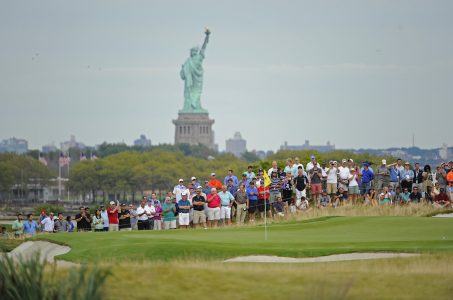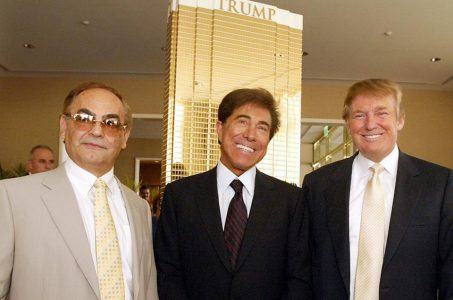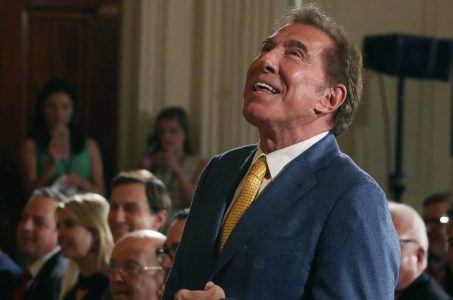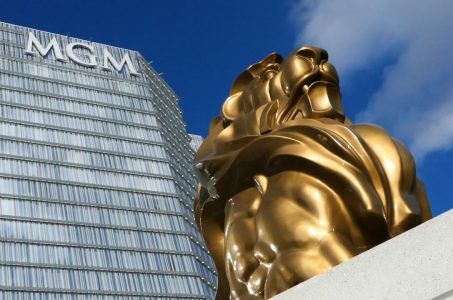Connecticut Airport Casino Wins Right-To-Know Case Against MGM
Posted on: August 11, 2016, 03:00h.
Last updated on: August 11, 2016, 02:14h.

The Connecticut airport casino being planned behind closed doors doesn’t need to reveal its objectives to MGM according to the state’s Freedom of Information Commission (FIC).
MGM Resorts is currently in the process of building a $950 million casino in Springfield, Massachusetts. After the Bay State passed its Expanded Gaming Act in 2011 and later awarded MGM the license for the western geographic section of the state in 2013, tribes in neighboring Connecticut aligned to build a casino off reservation land.
The Mashantucket Pequot and Mohegan tribes, operators of Foxwoods Resort Casino and Mohegan Sun, joined forces to lessen the impact of MGM’s facility.
The tribes are working on a deal behind closed doors with Bradley International Airport, the second busiest New England airport behind Boston’s Logan International. Bradley is just 20 miles south of where MGM Springfield is being built.
Bradley is owned and operated by the Connecticut Airport Authority (CAA), a quasi-public agency formed in 2011.
MGM filed complaints with the Connecticut FIC to make public the negotiations between the tribes and the airport. The Las Vegas-based company argued that another casino in the Springfield region would dilute revenues and negatively impact both the Massachusetts and Connecticut economies.
The FIC sided with the airport authority.
“Having such information in the public domain during the competitive process would reveal the authority’s negotiating strategy and would harm the authority’s ability to maintain optimal rental terms and conditions,” FIC officer Lisa Fein declared.
What We Don’t Know
Due to the ongoing private negotiations, little is known regarding the potential project. It’s also unclear as to the size and scope of the gaming facility being discussed.
The Airport Authority did release previous plans that included a casino at a new transportation center, and another that would have placed a casino in an additional terminal.
Both of those concepts have been scrapped.
Though the tribes and CAA are keeping their hand close, the authority did confirm a casino is still in the works.
Should the two sides strike a deal and wish to move forward, the town of Windsor Locks says it would first need to pass a local referendum and the state legislature would need to sign off on the casino location.
Casino gambling in Connecticut had previously been reserved to Native American land. That changed in 2015 when the state gave exclusive rights to the Mashantucket and Mohegan tribes to develop a third casino on off-reservation property.
Not-So-Neighborly Love
MGM is making substantial investments up and down the East Coast. It recently acquired Boyd Gaming’s 50 percent stake in the Borgata in Atlantic City, and is also building a $1.4 billion casino outside of Washington, DC.
But MGM isn’t receiving too warm of a welcome in DC or Massachusetts.
Maryland Live southwest of downtown Baltimore sued MGM over high-roller lists in July. And up north in Massachusetts, it’s not only the Mashantucket and Mohegan people looking to roadblock the MGM Springfield.
The Mashpee Wampanoag proposed a $1 billion casino in Taunton, Massachusetts, a region south of Boston that would have competed with Wynn Boston Harbor and MGM Springfield. Fortunately for the Massachusetts casinos, a federal judge ruled against the Mashpee plans saying the tribe didn’t have the right to acquire the designated land.
Related News Articles
North Jersey Casino Ads Heat Up as November Referendum Approaches
Wynn Land Deal Shows Deep Connections Between Wynn, Trump, and Ruffin
Most Popular
Mirage Las Vegas Demolition to Start Next Week, Atrium a Goner
Where All the Mirage Relics Will Go
Most Commented
-
Bally’s Facing Five Months of Daily Demolition for Chicago Casino
— June 18, 2024 — 12 Comments
















Last Comment ( 1 )
Today's article discusses a proposed casino in Windsor Locks, at or near Bradley International. And there was a discussion about a local vote and previous Legislative approval. But to allow a partnership of Mohegan and Foxwoods, to become the casino operator; would either require the Federal Government to place the selected site In Trust, or the CT Legislature to approve commercial gaming. And that action should open the door to bids from major casino companies; since a very lucrative location exists on the Western border, with New York. If CT is really trying to protect State jobs, and its casino revenue share; there is no reason to add a 4th competitor for the Greater Hartford/Springfield market. A Windsor Locks casino would harm the Mohegan and Foxwoods casinos as much as MGM Springfield; as they offer many more amenities; at two of the most complete destination resorts in North America. A much superior option, would be to place a destination resort, next to Westchester, Putnam, Dutchess and Orange Counties; with large population; and no casino; existing or proposed, nearby. And, like CT casinos have enjoyed taxing the citizens of Massachusetts for over 20 years; CT could still benefit from out of state customers and the contributions they would voluntarily make at a new mega casino servicing the NY market.